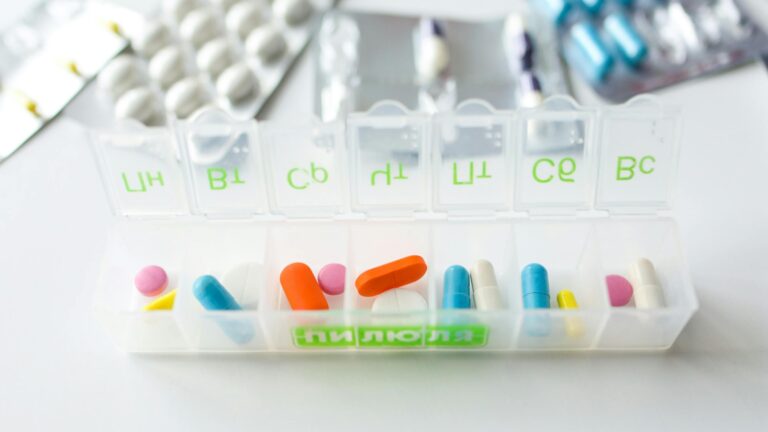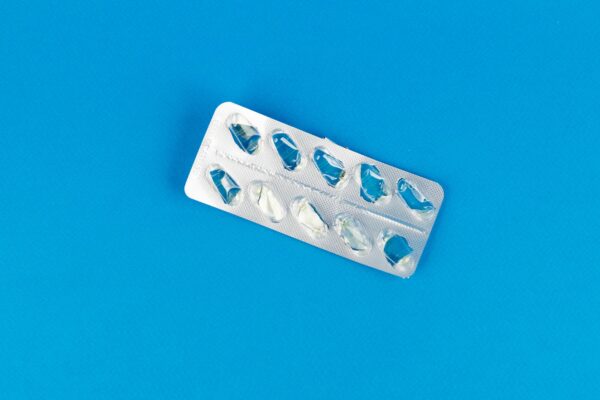When it comes to topics like erectile dysfunction (ED), it’s no secret that the conversation can feel a bit awkward. Let’s face it, guys—we’d rather not talk about it. But if you’re here, chances are you’re dealing with some questions about Trimipramine and whether it’s causing or contributing to ED. Stick around, because we’ve got answers, solutions, and some surprising facts to keep you informed.
- What Is Trimipramine?
- Understanding Erectile Dysfunction: What’s Happening?
- Can Trimipramine Cause Erectile Dysfunction?
- Signs Trimipramine Might Be Causing Your ED
- Managing Erectile Dysfunction While on Trimipramine
- Alternatives to Trimipramine
- The Psychological Side of ED
- Final Thoughts
- Studies, Sources, and Links
- FAQs: Trimipramine and Erectile Dysfunction
- Question: What is Trimipramine?
- Question: Can Trimipramine cause erectile dysfunction?
- Question: How can I manage erectile dysfunction while taking Trimipramine?
- Question: Are there alternatives to Trimipramine with fewer sexual side effects?
- Question: Is erectile dysfunction from Trimipramine permanent?
- Question: Can lifestyle changes help improve ED caused by Trimipramine?
- Question: Should I stop taking Trimipramine if I experience ED?
What Is Trimipramine?
Trimipramine is a tricyclic antidepressant (TCA) commonly prescribed to treat conditions like depression, anxiety, and even chronic pain. This medication works by influencing neurotransmitters in the brain, such as serotonin and norepinephrine, helping regulate mood and reduce symptoms of depression.
While effective for mental health conditions, Trimipramine is not without its side effects. One of the lesser-discussed but potentially impactful side effects for men is its connection to erectile dysfunction.
Understanding Erectile Dysfunction: What’s Happening?
Before diving into how Trimipramine might play a role, let’s break down what erectile dysfunction actually means. ED is the inability to achieve or maintain an erection firm enough for sexual activity. It’s a common issue, affecting an estimated 30 million men in the United States alone. Causes can range from psychological factors like stress or anxiety to physical ones like cardiovascular disease or hormonal imbalances.
When medications like Trimipramine enter the mix, they can sometimes complicate the situation. Let’s unpack how this works.
Can Trimipramine Cause Erectile Dysfunction?
The short answer: Yes, Trimipramine can contribute to erectile dysfunction. Like other TCAs, it affects brain chemicals that play a role in sexual arousal and function. Here’s how:
1. Neurotransmitter Disruption
Trimipramine alters the balance of serotonin and norepinephrine in the brain. While this helps improve mood, it can also interfere with the signals that trigger sexual arousal. For some men, this means reduced libido or difficulty achieving an erection.
2. Hormonal Effects
TCAs, including Trimipramine, may indirectly affect testosterone levels. Low testosterone is a well-known contributor to ED, and while Trimipramine doesn’t directly lower testosterone, its impact on hormonal pathways could have an effect over time.
3. Circulatory Impact
Erections depend on proper blood flow. Some studies suggest that TCAs may reduce blood vessel responsiveness, making it harder for blood to flow where it’s needed during sexual activity.
Signs Trimipramine Might Be Causing Your ED
Not all ED is caused by medication, so it’s important to watch for specific patterns that could indicate Trimipramine as the culprit. Common signs include:
- A sudden onset of ED after starting Trimipramine.
- A noticeable decrease in libido or sexual desire.
- Difficulty maintaining an erection even when arousal is present.
- No history of ED before taking the medication.
If any of these sound familiar, it’s worth considering whether Trimipramine is playing a role.
Managing Erectile Dysfunction While on Trimipramine
Don’t panic—ED caused by medications like Trimipramine doesn’t have to be permanent. There are several strategies you can try to reclaim your confidence in the bedroom:
1. Speak With Your Doctor
This is your first step. Your doctor can evaluate whether Trimipramine is the main factor behind your ED. They might suggest:
- Adjusting the dosage.
- Switching to a different antidepressant with fewer sexual side effects, such as bupropion.
2. Explore ED Medications
ED medications like sildenafil (Viagra) or tadalafil (Cialis) can be effective in counteracting the sexual side effects of Trimipramine. Always consult with your doctor before combining medications.
3. Lifestyle Changes
Certain lifestyle adjustments can boost your overall sexual health and help combat ED, including:
- Exercise regularly: Aim for 30 minutes of moderate activity daily to improve blood flow and reduce stress.
- Eat a balanced diet: Focus on foods rich in nutrients like zinc, magnesium, and antioxidants.
- Reduce stress: Practice mindfulness, meditation, or other relaxation techniques to ease anxiety that might exacerbate ED.
4. Timing Matters
If your ED seems linked to when you take your medication, consider adjusting the timing of your doses under medical supervision.
Alternatives to Trimipramine
If Trimipramine’s side effects are significantly impacting your quality of life, switching medications could be an option. Many antidepressants are known to have fewer sexual side effects, including:
- Bupropion (Wellbutrin): Often considered a go-to alternative due to its minimal impact on sexual function.
- Sertraline (Zoloft): May cause fewer instances of ED compared to TCAs.
- Escitalopram (Lexapro): A selective serotonin reuptake inhibitor (SSRI) with a generally mild side-effect profile.
Always work closely with your doctor before making any changes to your medication regimen.
The Psychological Side of ED
Let’s not overlook the psychological toll of ED. Anxiety about performance or fear of failure can create a vicious cycle, making the problem worse. Here are some ways to tackle the mental side of ED:
- Therapy: Cognitive behavioral therapy (CBT) can help address anxiety or depression linked to ED.
- Open Communication: Talk to your partner about what you’re experiencing. A supportive relationship can make a huge difference.
- Sexual Counseling: Working with a specialist in sexual health can provide tailored strategies for overcoming ED.
Final Thoughts
Erectile dysfunction can feel like a hit to your confidence, but it’s important to remember that you’re not alone. Whether Trimipramine is the culprit or just one piece of the puzzle, there are solutions to help you get back on track. From talking to your doctor to making lifestyle changes, small steps can lead to big improvements.
So, hang in there, take action, and don’t let ED define your life. After all, every man deserves to feel like his best self—both in and out of the bedroom.
Studies, Sources, and Links
When discussing topics like Trimipramine and erectile dysfunction, it’s essential to back claims with credible research and resources. Below, we’ve compiled a list of relevant studies, articles, and external links to help you explore this subject further.
Scientific Studies and Research
- Impact of Antidepressants on Sexual Function
- Clayton, A. H., Keller, A., & McGarvey, E. L. (2006). “Antidepressant-associated sexual dysfunction: A review of diagnostic, treatment, and research issues.” Journal of Affective Disorders, 86(2-3), 159-166.
Link to Study (PubMed)
- Clayton, A. H., Keller, A., & McGarvey, E. L. (2006). “Antidepressant-associated sexual dysfunction: A review of diagnostic, treatment, and research issues.” Journal of Affective Disorders, 86(2-3), 159-166.
- Erectile Dysfunction and Antidepressants
- Montejo, A. L., Llorca, G., Izquierdo, J. A., & Rico-Villademoros, F. (2001). “Incidence of sexual dysfunction associated with antidepressant agents: A prospective multicenter study of 1022 outpatients.” Journal of Clinical Psychiatry, 62(Suppl 3), 10-21.
Link to Study (PubMed)
- Montejo, A. L., Llorca, G., Izquierdo, J. A., & Rico-Villademoros, F. (2001). “Incidence of sexual dysfunction associated with antidepressant agents: A prospective multicenter study of 1022 outpatients.” Journal of Clinical Psychiatry, 62(Suppl 3), 10-21.
- Trimipramine: Pharmacology and Effects
- Gillman, P. K. (2007). “Tricyclic antidepressant pharmacology and therapeutic drug interactions updated.” British Journal of Pharmacology, 151(6), 737-748.
Full Text (PubMed Central)
- Gillman, P. K. (2007). “Tricyclic antidepressant pharmacology and therapeutic drug interactions updated.” British Journal of Pharmacology, 151(6), 737-748.
Informative Articles
- Understanding Erectile Dysfunction
- Mayo Clinic. “Erectile dysfunction: Causes, symptoms, and treatments.”
Visit the Mayo Clinic Website
- Mayo Clinic. “Erectile dysfunction: Causes, symptoms, and treatments.”
- Antidepressants and Sexual Side Effects
- Harvard Health Publishing. “Sexual side effects of antidepressant medications.”
Read the Article
- Harvard Health Publishing. “Sexual side effects of antidepressant medications.”
- Trimipramine Overview
- Drugs.com. “Trimipramine: Uses, side effects, and safety information.”
Visit Drugs.com
- Drugs.com. “Trimipramine: Uses, side effects, and safety information.”
Helpful Links for Further Exploration
- National Institute of Mental Health (NIMH): Comprehensive resources on mental health treatments, including antidepressants.
Explore NIMH Resources - American Urological Association (AUA): Educational materials on erectile dysfunction and related treatments.
Visit AUA Website - WebMD: Practical advice and articles on managing ED and its potential causes.
Visit WebMD
These studies and sources provide a well-rounded foundation to understand the interplay between Trimipramine and erectile dysfunction. They also offer actionable insights into managing and mitigating side effects.
FAQs: Trimipramine and Erectile Dysfunction
Question: What is Trimipramine?
Trimipramine is a tricyclic antidepressant used to treat depression, anxiety, and chronic pain. It works by balancing certain neurotransmitters in the brain to improve mood and mental health.
Question: Can Trimipramine cause erectile dysfunction?
Yes, Trimipramine can cause erectile dysfunction as a side effect. It may affect neurotransmitters, blood flow, or hormones, all of which play a role in sexual function.
Question: How can I manage erectile dysfunction while taking Trimipramine?
To manage ED, consult your doctor about adjusting your dose, switching medications, or using ED treatments like sildenafil (Viagra). Lifestyle changes, such as exercising and reducing stress, can also help.
Question: Are there alternatives to Trimipramine with fewer sexual side effects?
Yes, alternatives like bupropion (Wellbutrin) or SSRIs such as escitalopram (Lexapro) may have fewer sexual side effects. Discuss options with your healthcare provider.
Question: Is erectile dysfunction from Trimipramine permanent?
In most cases, ED caused by Trimipramine is not permanent. Adjusting the medication or treating the side effects can often resolve the issue. Speak with your doctor for tailored advice.
Question: Can lifestyle changes help improve ED caused by Trimipramine?
Yes, lifestyle changes like regular exercise, a healthy diet, stress management, and avoiding smoking or excessive alcohol can improve ED, even if it’s related to medication use.
Question: Should I stop taking Trimipramine if I experience ED?
Do not stop taking Trimipramine without consulting your doctor. They can help determine the best course of action, which might include adjusting your dose or exploring alternative treatments.
Disclaimer: This article is for informational purposes only and not a substitute for professional medical advice. Always consult your healthcare provider for guidance specific to your condition.





